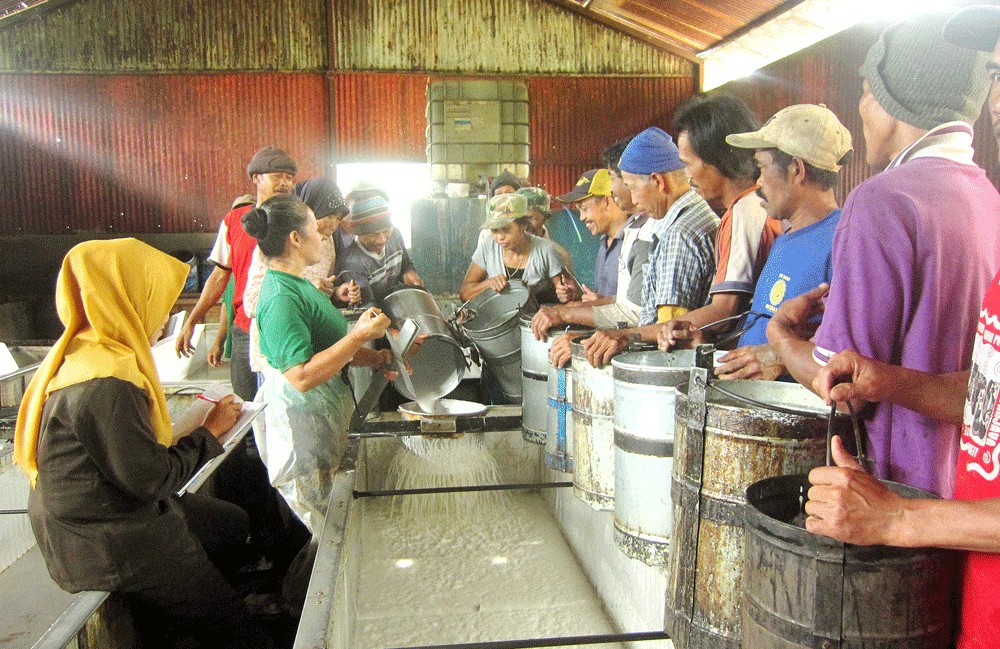Popular Reads
Top Results
Can't find what you're looking for?
View all search resultsPopular Reads
Top Results
Can't find what you're looking for?
View all search resultsGovt agrees to three IRTC policies to boost rubber prices
As part of the International Rubber Tripartite Council (IRTC), Indonesia has agreed to implement three policies to increase natural rubber prices.
Change text size
Gift Premium Articles
to Anyone
T
he Indonesian government has announced three new policies that aim to jack up the price of natural rubber, which has hit a record low since 2018.
Coordinating Economic Minister Darmin Nasution said the new policies would restrict natural rubber exports, expand the domestic use of rubber in construction, and replant rubber plantations.
"With these three policies, we believe we can prevent another fall in natural rubber prices," Darmin said on Monday at a Jakarta press briefing, as quoted by Antara.
He said that the current price of natural rubber exports was around US$1.45 (Rp 20,300) per kilogram, while the farm gate price ranged from Rp 7,000 to Rp 7,500 (50 US cents) per kilogram. Darmin said these prices were not suitable for current supply and demand conditions.
The three policies come following the International Rubber Tripartite Council (IRTC) meeting on Feb. 22 in Bangkok, Thailand. The IRTC was established in 2004 by the top three rubber-producers in the world: Thailand, Indonesia and Malaysia.
The countries agreed for the sixth time to implement the Agreed Export Tonnage Scheme (AETS), which requires them to cut natural rubber exports by 200,000 to 300,000 metric tons in the next three months.
Aside from the AETS, the three countries also agreed to boost the local use of natural rubber through a demand promotion scheme.
Under the scheme, the Indonesian government will expand the domestic use of rubber in infrastructure projects, such as in roads, railway dampers, road dividers and bridge bearings.
In order to maintain stable supply and demand for natural rubber, the IRTC countries will also be implementing a supply management scheme and replant rubber plantations with new trees.
Darmin said the Agriculture Ministry had only replanted 6,000 hectares out of a total 3.6 million hectares of rubber plantations in the country, adding that the government would also accelerate the replanting scheme.
"We have never implemented a systemic replanting [scheme] since we established rubber plantations 100 years ago. We will be replanting up to 50,000 hectares in the future," he said. (ars/dmr)










